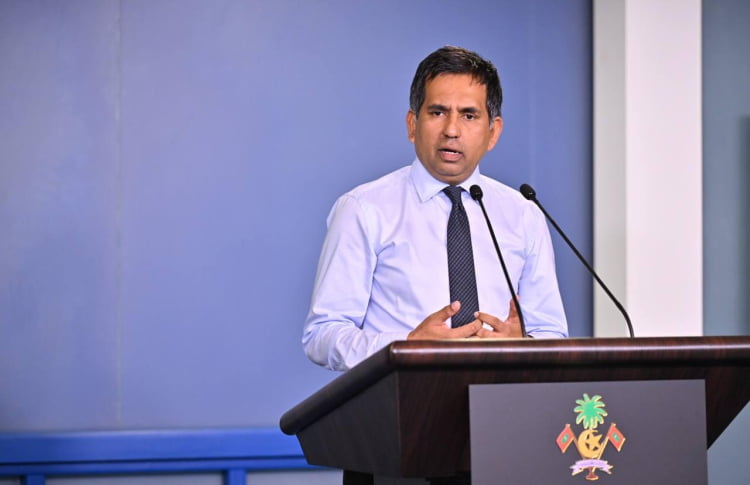
Introduction to the Maldivian Investment Landscape
Top Investment Opportunities in the Maldives for 2024- The Maldives, renowned for its picturesque islands and luxurious resorts, is not only a global tourism hotspot but also an emerging investment destination. The country’s political stability, coupled with a robust economic growth trajectory, positions it as an attractive locale for investors in 2024. The Maldivian government has been proactive in fostering a conducive environment for investment, implementing numerous initiatives tailored to attract foreign capital.
Over recent years, the economic landscape of the Maldives has seen significant growth, driven primarily by the tourism sector. The government’s strategic focus on diversifying the economy has led to the development of other key industries such as fisheries, construction, and renewable energy. This diversification is crucial in reducing the nation’s dependency on tourism and building a resilient economy capable of withstanding global market fluctuations.
Political stability in the Maldives has been a cornerstone of its economic prosperity. The government has maintained a consistent policy framework that supports business operations and investment activities. This stability is further reinforced by a series of regulatory reforms aimed at simplifying the business environment, reducing bureaucratic hurdles, and ensuring transparency in governmental processes.
A pivotal aspect of the Maldivian investment climate is the introduction of tax incentives designed to attract foreign investors. These incentives include tax holidays, exemptions, and reduced rates for businesses that meet specific criteria. Such measures not only enhance the profitability of investments but also stimulate economic activity and job creation within the country.
Moreover, the government has embarked on extensive infrastructure development projects, enhancing connectivity and accessibility across the archipelago. These projects, ranging from airport expansions to improved maritime facilities, are integral to supporting both tourism and other commercial ventures.
In summary, the Maldives offers a multifaceted investment landscape characterized by economic growth, political stability, and welcoming government policies. These elements collectively underscore why the Maldives is poised to be a prime investment destination in 2024.
Tourism and Hospitality Sector
The tourism and hospitality sector remains the cornerstone of the Maldivian economy, contributing significantly to its GDP and employment. As of 2023, the Maldives welcomed over 1.7 million visitors, a testament to its enduring appeal as a premier travel destination. This continuous influx of tourists is supported by a robust infrastructure comprising major hotel chains such as Four Seasons, Marriott, and Hilton, alongside an array of independent luxury resorts.
The landscape of the Maldivian tourism sector is evolving with the development of new resorts and the refurbishment of existing ones. Investments in infrastructure, such as the expansion of Velana International Airport, are set to further boost visitor numbers and enhance the overall travel experience. Notably, there has been a significant rise in interest towards eco-tourism and luxury travel, driven by a global shift towards sustainable and unique travel experiences.
Eco-tourism, in particular, has become a pivotal trend, with numerous resorts implementing sustainable practices to minimize their environmental impact. This includes the use of renewable energy, waste management systems, and marine conservation initiatives. The Maldives’ commitment to sustainability offers lucrative investment opportunities in sustainable tourism projects that align with global environmental standards.
Moreover, the demand for boutique hotels and personalized travel experiences is on the rise. Investors can capitalize on this trend by developing niche accommodations that offer bespoke services and immersive cultural experiences. Adventure tourism is another burgeoning segment, with activities such as diving, snorkeling, and island-hopping attracting thrill-seekers and nature enthusiasts alike.
In summary, the tourism and hospitality sector in the Maldives presents a multitude of investment opportunities. From developing sustainable tourism projects to creating boutique hotels and adventure tourism experiences, investors can tap into the diverse and growing demands of global travelers. As the Maldives continues to enhance its infrastructure and expand its tourism offerings, the potential for profitable ventures in this sector remains extraordinarily promising.
Real Estate and Infrastructure Development
The Maldives is witnessing a significant surge in real estate and infrastructure development, presenting lucrative investment opportunities. This growth is driven by an increasing demand for both residential and commercial properties, fueled by the booming tourism industry and the rising local population. The tourism sector, which constitutes a substantial portion of the Maldivian economy, continues to attract investors, resulting in heightened demand for hospitality-related real estate, including luxury resorts and boutique hotels.
In parallel, the local population’s growth has necessitated the expansion of residential areas. Urbanization trends are prompting the development of modern housing projects to accommodate the needs of the residents. This demand is particularly pronounced in the capital, Malé, and surrounding islands, where space constraints and population density are driving innovative real estate solutions.
Moreover, the Maldivian government is actively investing in major infrastructure projects to support this growth. Key initiatives include the expansion of Velana International Airport, which aims to enhance the country’s connectivity and accommodate increasing tourist arrivals. Additionally, the development of new road networks and the improvement of existing ones are crucial for facilitating better transportation across the islands. Public utilities, such as enhanced water and electricity supply systems, are also being upgraded to support the burgeoning population and tourism sector.
Investment opportunities in the Maldives‘ real estate and infrastructure sector are diverse. Potential investors might consider real estate development projects, focusing on both residential and commercial properties. Property management services also present a viable option, given the growing need for professional management of new and existing properties. Furthermore, the construction sector offers significant prospects, particularly in infrastructure development projects like airport expansions, road construction, and public utility upgrades.
Overall, the real estate and infrastructure development sector in the Maldives holds substantial promise for investors in 2024, driven by a robust tourism industry, population growth, and government-backed infrastructure projects. This dynamic environment creates a fertile ground for diverse investment opportunities, from real estate development to construction services.
Renewable Energy and Environmental Solutions
The Maldives is increasingly positioning itself as a leader in renewable energy and environmental sustainability. This strategic shift is driven by the government’s robust commitment to reducing carbon emissions and diminishing reliance on imported fossil fuels. The nation’s ambitious goal of achieving net-zero carbon emissions by 2030 has led to significant investment opportunities in various renewable energy projects.
Solar energy has emerged as a cornerstone of the Maldives’ renewable energy strategy. The abundant sunlight throughout the year makes solar power a viable and efficient energy source. Numerous solar farms have been established across the islands, and there is ample scope for further investment in this sector. The government offers attractive incentives for private investors, including tax breaks and streamlined regulatory processes, to encourage participation in solar energy projects.
Wind energy also presents substantial opportunities. Though the Maldives experiences variable wind patterns, advances in technology have made wind farms more feasible. Strategic sites along coastal areas are being identified for the development of wind energy projects. Investors can benefit from government-backed initiatives aimed at enhancing the infrastructure necessary for wind power generation.
Beyond energy, the Maldives is focusing on comprehensive environmental solutions. Waste management is a critical area, given the challenges of limited land space and high tourist influx. Innovative approaches to waste reduction, recycling, and sustainable waste disposal are highly encouraged. Companies specializing in these technologies can find lucrative opportunities in partnerships with local authorities and tourism operators.
Water purification is another essential sector, with the Maldives facing freshwater scarcity issues. Investment in advanced desalination technologies and water treatment systems is crucial to meet the growing demand for clean water. The government supports ventures aimed at improving water infrastructure and ensuring sustainable water resources.
Marine conservation projects are also gaining traction, emphasizing the protection of coral reefs and marine biodiversity. These initiatives not only preserve the natural habitat but also enhance the tourism appeal of the Maldives. Investors in marine conservation can collaborate with non-governmental organizations and local communities to implement sustainable practices that benefit both the environment and the economy.







